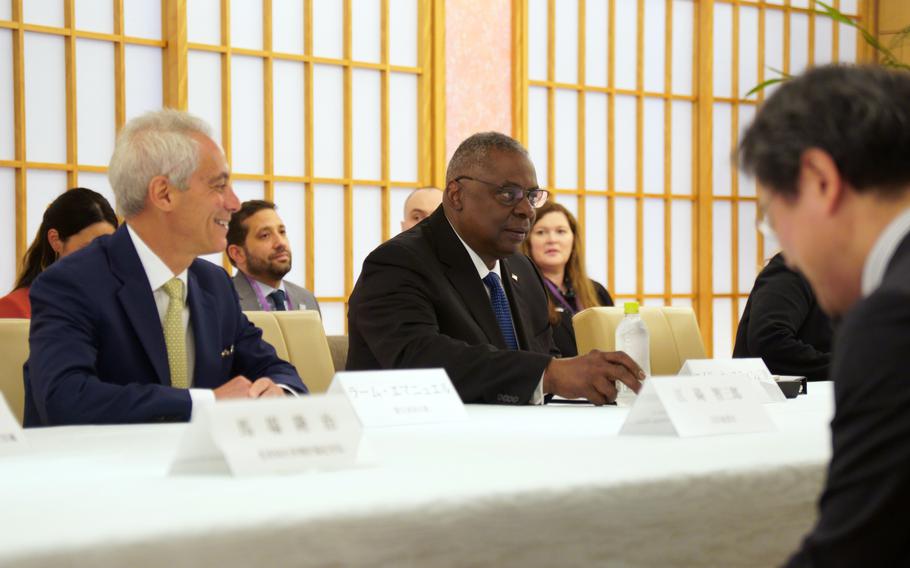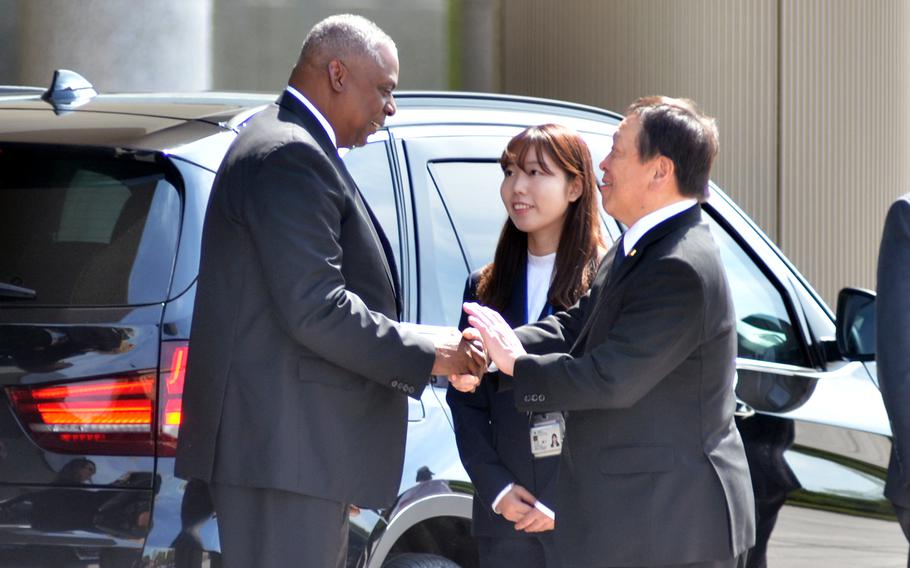
Defense Secretary Lloyd Austin and U.S. Ambassador to Japan Rahm Emanuel visit Japan's Ministry of Foreign Affairs in Tokyo, Thursday, June 1, 2023. (Akifumi Ishikawa/Stars and Stripes)
TOKYO — Defense Secretary Lloyd Austin and his Japanese counterpart talked up cooperation with South Korea and other Indo-Pacific partners during a meeting in the Japanese capital a day after a failed North Korean rocket launch.
Austin touched down Wednesday at Yokota Air Base, home of U.S. Forces Japan in western Tokyo, on his way to the annual Shangri-La Dialogue Asian security summit, which starts Friday in Singapore.
His arrival in Japan coincided with a failed attempt by North Korea to put a surveillance satellite into orbit; the launch vehicle instead malfunctioned and plummeted into the sea off the South’s western coast. Take-shelter and evacuations alerts were issued in Seoul and Okinawa minutes after the launch.
“We stand with our allies in the face of provocation including yesterday’s claimed space launch,” Austin told reporters after meeting Japanese Defense Minister Yasukazu Hamada at the ministry’s Tokyo headquarters.
Austin said he’d met troops from both the United States and Japan during his trip.
“Our militaries are training with each other like never before,” he said.

Defense Secretary Lloyd Austin greets his Japanese counterpart, Yasukazu Hamada, outside the Ministry of Defense headquarters in Tokyo, Thursday, June 2, 2023. (Seth Robson/Stars and Stripes)
The defense chiefs discussed the North Korean rocket launch along with Russia’s invasion of Ukraine, challenges involving China and the importance of peace and stability across the Taiwan Strait, Hamada told reporters.
“We want to deepen cooperation, not only between Japan and the United States, but also with South Korea, Australia and Southeast Asian countries,” he said.
China’s aggressive May 26 intercept of an Air Force surveillance plane over the South China Sea drew Austin’s ire.
Video released Tuesday by the U.S. military shows a twin-engine J-16 Shenyang fighter crossing in front of an Air Force RC-135 surveillance plane. The 30-second clip, recorded from the American aircraft's cockpit, shows the crew being bounced around as they fly through the fighter's wake.
"The provocative intercept of our aircraft and our allies' aircraft is very concerning and we would hope [China] would alter their actions," Austin said.
It was "unfortunate" that Chinese Minister of National Defense Li Shangfu had declined a U.S. offer to meet at the dialogue in Singapore, he said.
"I am concerned about at some point having an incident that could very quickly spiral out of control," Austin said.